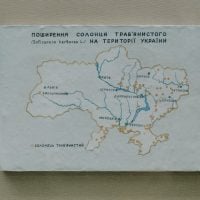Deadline: 6-Jan-23
The USAID Energy Secure Philippines (ESP) Activity through its Energy Evolution Challenge grant facility seeks applications to fund, in the form of grants, qualified organizations/companies to catalyze innovative, replicable, and scalable energy systems solutions in the Fish- and AgroProcessing Industries in the Philippines where they do not already exist or complement existing ones.
This RFA provides prospective applicants with a fair opportunity to develop and submit applications to USAID ESP Activity for potential funding. The grant will support entities that have a robust design and plan, and capacity to subsequently implement innovative energy solutions that will showcase the benefits of institutionalizing energy management systems in either or both target industries. The application should also demonstrate that the proposed innovative energy solutions contribute to the quantity and quality of local produce.
Objectives
In order to achieve the Grant objectives, a successful grantee is expected perform the following:
- Assess and scan the environment within and beyond the enterprise and identify opportunities and issues that facilitate and accelerate as well as impede the EEC transformation. These include: (a) presenting a clear and robust plan to identify the Fish- and Agro-Processing Industrial facility representative of the same industrial segment in the country; (b) obtaining firm management commitment of the processing facility; (c) assessing the current level of energy use, and projected improvements in energy utilization; (d) evaluating the corresponding prioritized innovative energy interventions (both technical and non-technical; indexed against international best practices in similar sector, and including the striking of balance and right mix between energy supply and demand); (e) identifying means of implementing these interventions; and (f) doing performance monitoring and verification.
- Kick-off the transformation of the facility into an energy-smart processing facility by initially implementing at least one viable innovative energy system that will show quick wins. The transformation process should be supporting collaboration, partnerships, gender inclusion, knowledge and technical/management expertise transfer which enable better and more professional decision-making, regulation, and innovation within the enterprise.
- Develop an energy management framework for the processing facility with menu of EEC measures, roadmap to replicate and scale up the innovative energy systems to similar industrial segments and quantify the impact of the proposed solutions, in terms of energy demand and energy reductions (and the attendant GHG reductions), energy intensity and indices, improvement in quality of products and services, among others. The grantee should be able to complement this phase of work with communications and marketing strategy and allied materials for dissemination, considering the local context and issues.
- Demonstrate the outcome of the grant in supporting the government’s goal of food security
Themes
This grant is targeting organizations/companies, as defined for in this request, which supports and achieve either or both grant themes below:
- Policy and technical research/studies. USAID through ESP seeks to establish energy sector knowledge and learning hubs at universities across the three main island groups (Luzon, Visayas, Mindanao), in order to conduct objective analysis of critical energy issues and recommend practical solutions on topics such as increasing the affordability of energy, optimal design of demand-side management (DSM) programs, expanding inclusivity and local energy access, and mitigating investment risks. The hubs will also be used as training platforms and will host dialogues on local issues.
- Innovative energy technologies, systems, or applications. Current energy innovations may be limited in scale and sustainability due to policy restrictions, limited financing, and lack of technology support. Through ESP’s Energy Evolution Challenge, USAID seeks to support pilot approaches that can overcome constraints, scale up technologies, test innovations (e.g., financing models including results-based financing [RBF]), support US/GPH business partnerships, improve resilience, and/or are eligible for future US International Development Finance Corporation funding. Grants may be awarded to develop productive use of energy and off-grid systems; implement cybersecurity, resilience, and monitoring systems; or provide proof of concept for new approaches or technologies.
Funding Information
- The total value of any individual grant to a U.S. organization, if any, must not exceed $100,000. This limitation does not apply to grant awards to non-U.S. organizations.
Outcomes
Anticipated results for this grant may include, but are not limited to;
- A robust energy management framework for processing segment Fish and Agro industry, considering the local context and the energy resource condition.
- Monitoring and verification plan, to compare baseline energy consumption and allied inputs (raw materials including water) and product quality and quantity, and periodic targets up to end of grant period, as well as GHG emissions reduced/avoided.
- Compendium of the Business Case of EEC innovations/interventions in the target segment which details the array of measures, ranging from no-cost, medium- to high-capitalinvestment, along with implementation arrangements including sourcing, financing, procurement; and expected returns as well as equivalent GHG emission reduction where appropriate.
- Documentation of the EEC transformation exercise, from the identification of the potential enterprise, getting commitment and support from concerned stakeholders within and outside of the organization, conducting energy assessments, prioritizing projects, accessing/ arranging financing, procurement, capacity building, experiences in implementing the innovation, etc.
- Roadmap for the energy management transformation in Fish- and Agro-Processing Segment for replication and scaling-up throughout the country considering the local contexts and issues.
- Environmental Management Plan focusing on compliance to existing laws and regulations in rolling out the EEC interventions in the processing segment, and proper disposal of obsolete equipment and/or wastes. Equally important is the management of environmental risks and mitigation of the same.
- A policy brief highlighting what facilitates or hinders adoption and deployment of innovative energy (EEC) systems and what policy recommendations or other improvements in the enabling environment are needed to accelerate and scale-up the EEC transformation process considering that technology is evolving.
- A comprehensive final Terminal Report.
Eligibility Criteria
- USAID ESP Activity grant support may be extended to energy innovators, technology providers, enterprises, civil society organizations, community-based organizations, businesses, commercial establishments, academic institutions, and research institutions, that meet the following eligibility requirements:
- Demonstrated experience working in the energy industry in the Philippines
- Applications meet minimum evaluation criteria for:
- Soundness of technical approach
- Understanding of local context, and
- Qualifications of proposed personnel
- Demonstrated financial capacity to manage large USG grants
- Cost realism of the budget
- Past performance / proven track record
For more information, visit USAID.









































